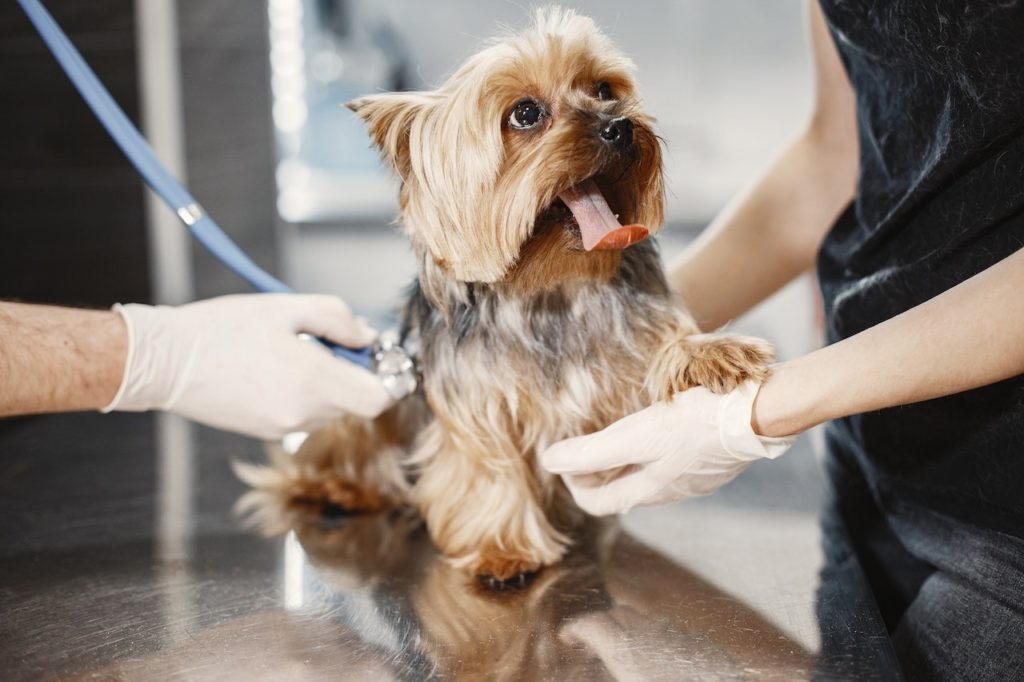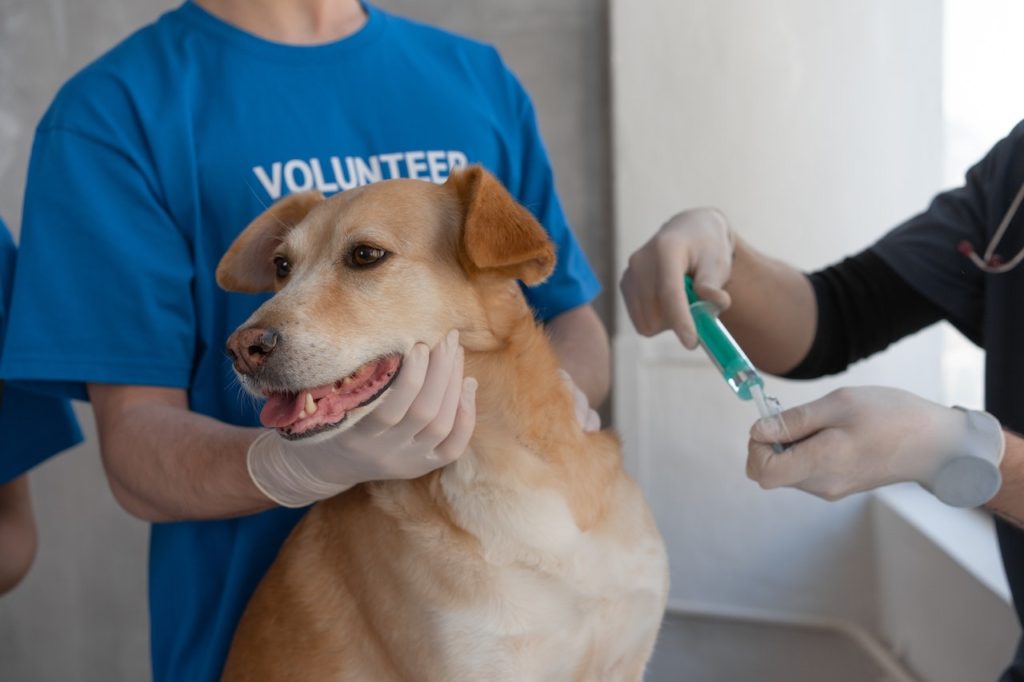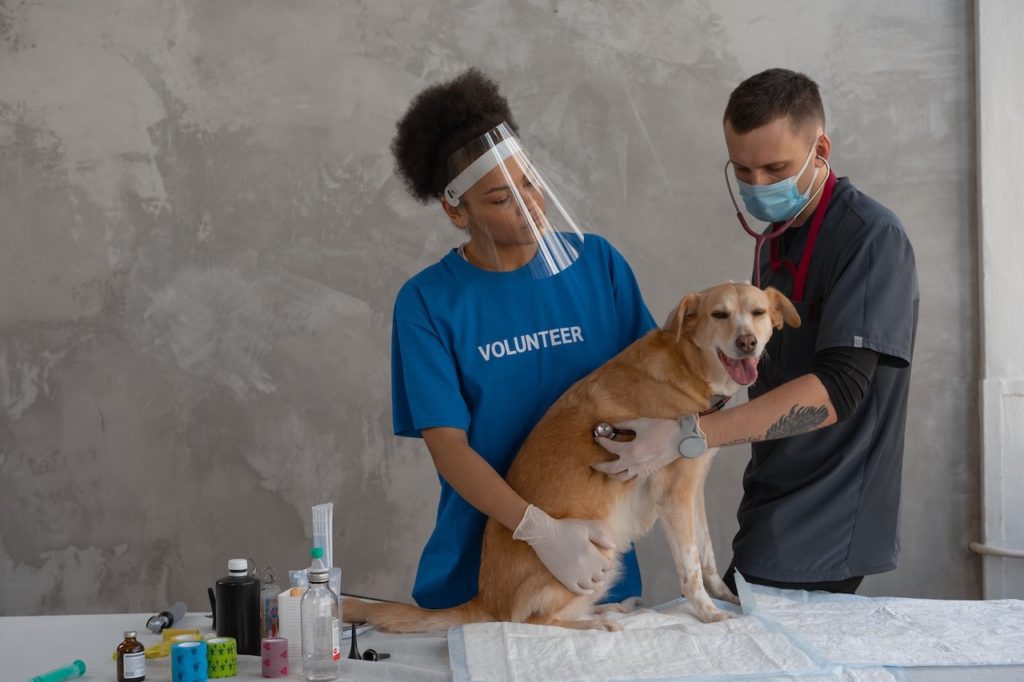Have you ever wondered what vaccinations are essential for keeping your furry friend healthy? In this article, we will explore the necessary vaccinations that your dog needs in order to maintain their overall wellness. From rabies to distemper, we will cover the key vaccinations that are crucial for preventing diseases and ensuring your dog’s well-being. Discover the importance of vaccination and the peace of mind it brings knowing you are protecting your beloved companion.
Core Vaccinations
Distemper
Distemper is a highly contagious viral disease that affects dogs and other animals. It primarily affects the respiratory, gastrointestinal, and nervous systems, and can be fatal in severe cases. Distemper can be spread through direct contact with an infected animal, as well as through airborne transmission. Common signs and symptoms of distemper include fever, coughing, nasal discharge, vomiting, diarrhea, and neurological issues such as seizures. Vaccination is crucial in preventing distemper, and puppies should receive their first distemper vaccine at 6-8 weeks of age, followed by booster shots every 2-3 weeks until they are 16 weeks old. Adult dogs should receive a distemper booster every 1-3 years, depending on their lifestyle and risk factors.
Hepatitis
Hepatitis in dogs is caused by the canine adenovirus type 1 (CAV-1) and primarily affects the liver. It can result in liver failure and other serious complications. Hepatitis can be transmitted through direct contact with an infected dog’s urine, feces, or saliva. Common signs and symptoms include fever, loss of appetite, vomiting, abdominal pain, jaundice, and increased thirst and urination. Vaccination is essential in protecting your dog against hepatitis. Puppies should receive their first hepatitis vaccine at 6-8 weeks of age and receive booster shots every 2-3 weeks until they are 16 weeks old. Adult dogs should receive a hepatitis vaccine booster every 1-3 years.
Parvovirus
Parvovirus is a highly contagious viral disease that primarily affects the gastrointestinal system in dogs. It can cause severe vomiting, diarrhea (often bloody), dehydration, and can be fatal, especially in puppies. Parvovirus spreads through direct contact with infected dogs, contaminated objects or environments, and even through the feces of infected animals. Vaccination plays a crucial role in preventing parvovirus. Puppies should receive their first parvovirus vaccine at 6-8 weeks of age and receive booster shots every 2-3 weeks until they are 16 weeks old. Adult dogs should receive a parvovirus vaccine booster every 1-3 years.
Parainfluenza
Parainfluenza is a highly contagious respiratory infection that often occurs in combination with other viral or bacterial infections, leading to conditions such as kennel cough. It can cause coughing, sneezing, nasal discharge, and fever. Parainfluenza is primarily spread through respiratory secretions, including through the air. Vaccination is essential in protecting your dog from parainfluenza. Puppies should receive their first parainfluenza vaccine at 6-8 weeks of age and receive booster shots every 2-3 weeks until they are 16 weeks old. Adult dogs should receive a parainfluenza vaccine booster every 1-3 years.
Rabies
Rabies is a deadly viral disease that affects the central nervous system, including the brain, in both animals and humans. It is primarily transmitted through the bite of an infected animal, such as raccoons, bats, skunks, or infected dogs. Rabies can be prevented through vaccination, and it is typically required by law in many places. Puppies should receive their first rabies vaccine at 12-16 weeks of age, followed by a booster shot in one year. After the initial booster, rabies vaccines are typically given every 1-3 years, depending on local regulations and the vaccine used.

Non-Core Vaccinations
Bordetella
Bordetella, also known as kennel cough, is a highly contagious respiratory infection that can affect dogs of all ages. It is commonly spread in environments where dogs are in close proximity to each other, such as boarding facilities, grooming salons, and dog parks. The symptoms of kennel cough include a dry cough, sneezing, nasal discharge, and occasionally a low-grade fever. Vaccination is recommended for dogs that are at higher risk of exposure to Bordetella, especially if they will be in boarding situations or interacting with dogs from different households. The Bordetella vaccine can be administered as a nasal spray or injection, and booster shots are typically required annually.
Leptospirosis
Leptospirosis is a bacterial infection that can affect dogs, as well as other animals and humans. It is primarily transmitted through contact with contaminated water or soil, often through the urine of infected animals such as rodents. Leptospirosis can cause flu-like symptoms, as well as more severe conditions such as liver and kidney damage. Vaccination is recommended for dogs that may be exposed to areas with a high prevalence of leptospirosis, such as rural environments or those with access to bodies of water. The leptospirosis vaccine is typically given as an initial series of two vaccines, followed by annual boosters.
Lyme Disease
Lyme disease is a bacterial infection transmitted through the bite of infected ticks, primarily the black-legged tick or deer tick. It can cause a range of symptoms, including fever, lameness, joint swelling, and in severe cases, kidney and heart problems. Lyme disease is more prevalent in certain regions, especially those with a high population of deer ticks. Vaccination is recommended for dogs at higher risk of exposure, particularly those living in or frequently visiting areas where Lyme disease is endemic. The Lyme disease vaccine is typically administered as an initial series of two vaccines, followed by boosters annually.
Canine Influenza
Canine influenza, also known as dog flu, is a highly contagious respiratory infection that affects dogs. There are two strains of canine influenza virus: H3N8 and H3N2. Common signs and symptoms include coughing, sneezing, nasal discharge, fever, and lethargy. Canine influenza can be transmitted through direct contact with infected dogs, contaminated objects, or through the air. Vaccination is recommended for dogs at higher risk of exposure, such as those that visit dog parks, boarding facilities, or interact with dogs from different households. The canine influenza vaccine is typically given as an initial series of two vaccines, followed by annual boosters.

Coronavirus
Coronavirus in dogs is a highly contagious intestinal infection that primarily affects puppies. It can cause mild gastrointestinal symptoms such as diarrhea, vomiting, and decreased appetite. Although coronavirus is usually self-limiting and not life-threatening, vaccination may be recommended for puppies at higher risk of exposure, such as those in crowded environments or multi-dog households. The coronavirus vaccine is typically administered as part of a combination vaccine that also includes protection against other diseases like parvovirus.
Vaccination Schedules
Puppy Vaccination Schedule
Puppies require a series of vaccinations to protect them against various diseases. The typical puppy vaccination schedule includes the core vaccines (distemper, hepatitis, parvovirus, and parainfluenza) as well as additional vaccines depending on the local prevalence of non-core diseases. The vaccination schedule often starts at 6-8 weeks of age and involves a series of booster shots every 2-3 weeks until the puppy is 16 weeks old. Following the initial series, additional boosters and annual or triennial vaccinations are necessary to maintain immunity. It is crucial to consult with a veterinarian to determine the appropriate vaccination schedule for your puppy.
Adult Dog Vaccination Schedule
Once a dog reaches adulthood, they will still require vaccinations to maintain their immunity against various diseases. The adult dog vaccination schedule includes core vaccines such as rabies, distemper, hepatitis, parvovirus, and parainfluenza, based on the dog’s lifestyle and local disease prevalence. Non-core vaccines, such as those for bordetella, leptospirosis, lyme disease, canine influenza, and coronavirus, may also be recommended depending on the dog’s potential exposure. Revaccination intervals for adult dogs vary depending on the vaccines used and local regulations. It is essential to consult with a veterinarian to create an individualized vaccination schedule for your adult dog.
In conclusion, vaccination is a vital component of your dog’s overall wellness care. Core vaccinations protect against diseases that are widespread and pose significant health risks, while non-core vaccinations provide additional protection based on your dog’s lifestyle and potential exposure. Following the appropriate vaccination schedules, tailored to your dog’s age and individual needs, will help ensure their long-term health and well-being. Remember to consult with a veterinarian to determine the best vaccination plan for your furry companion.


